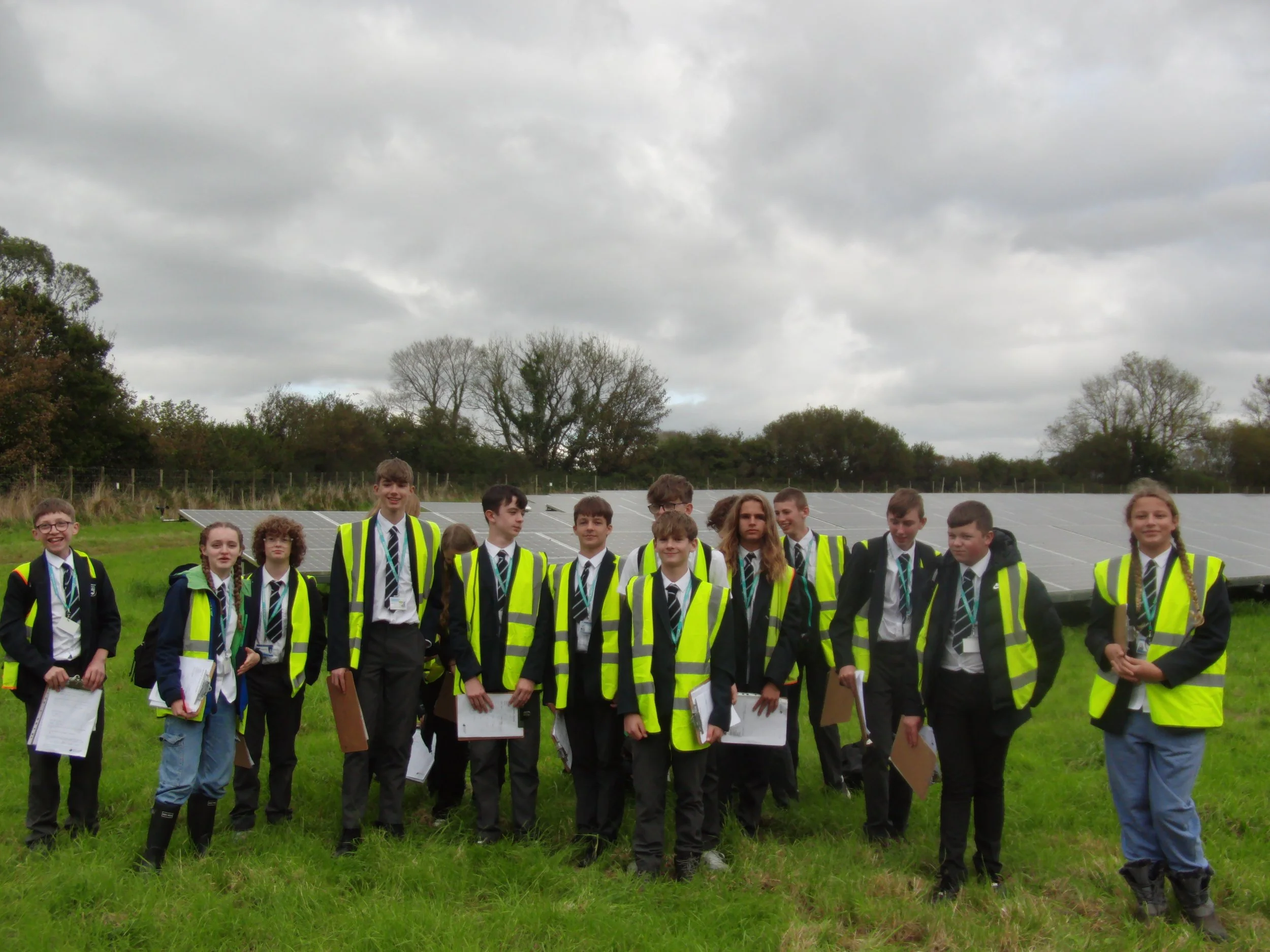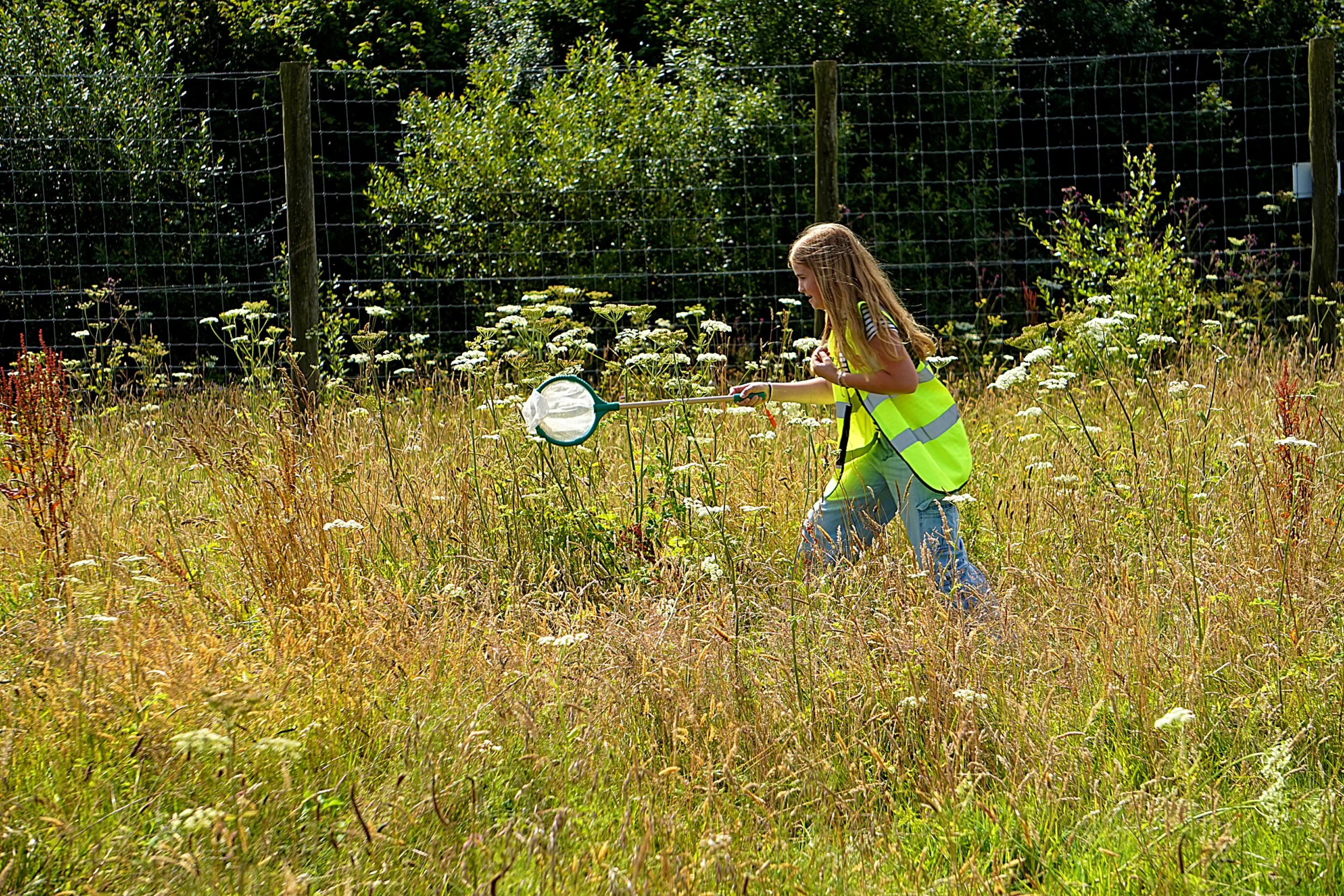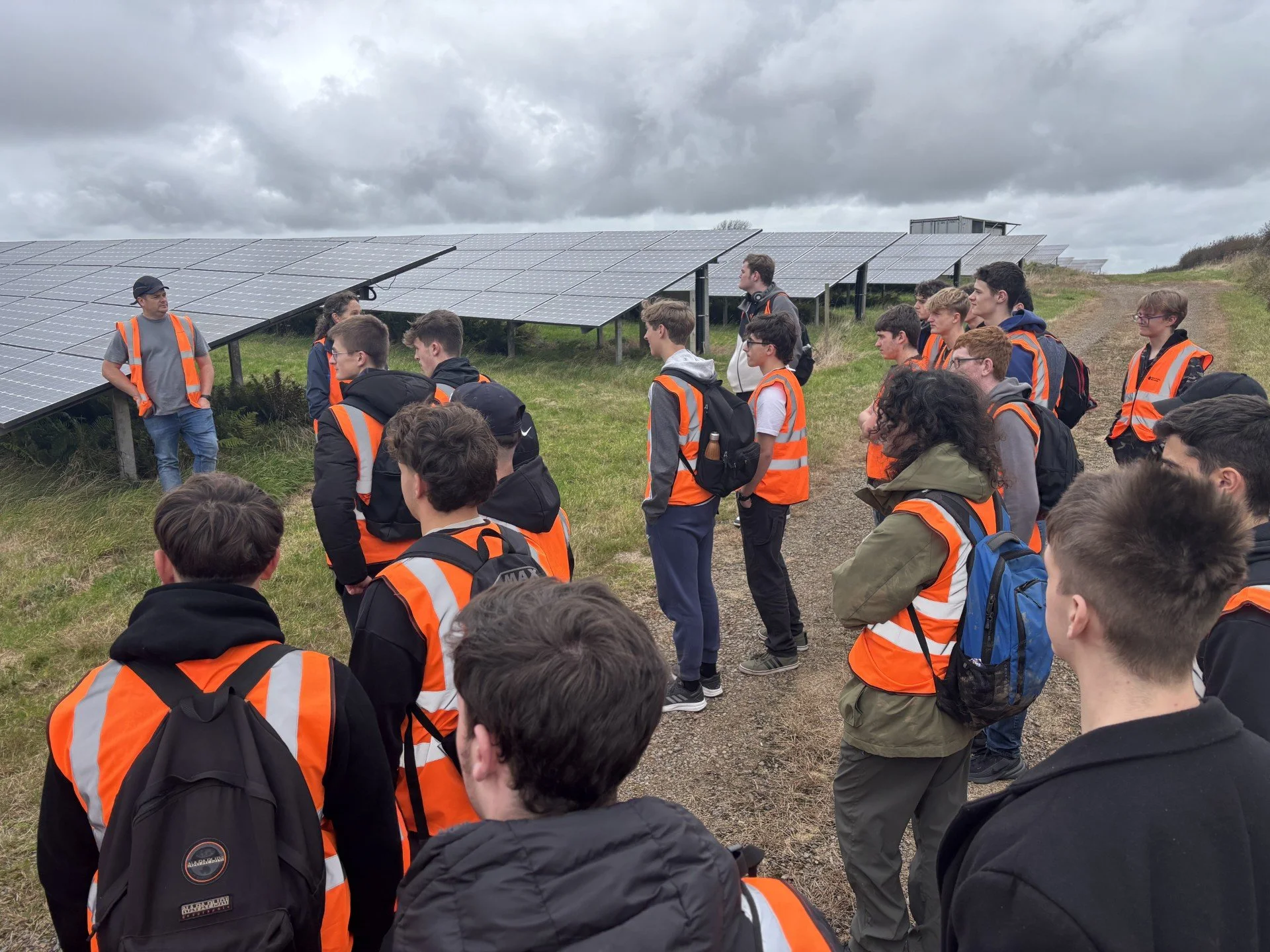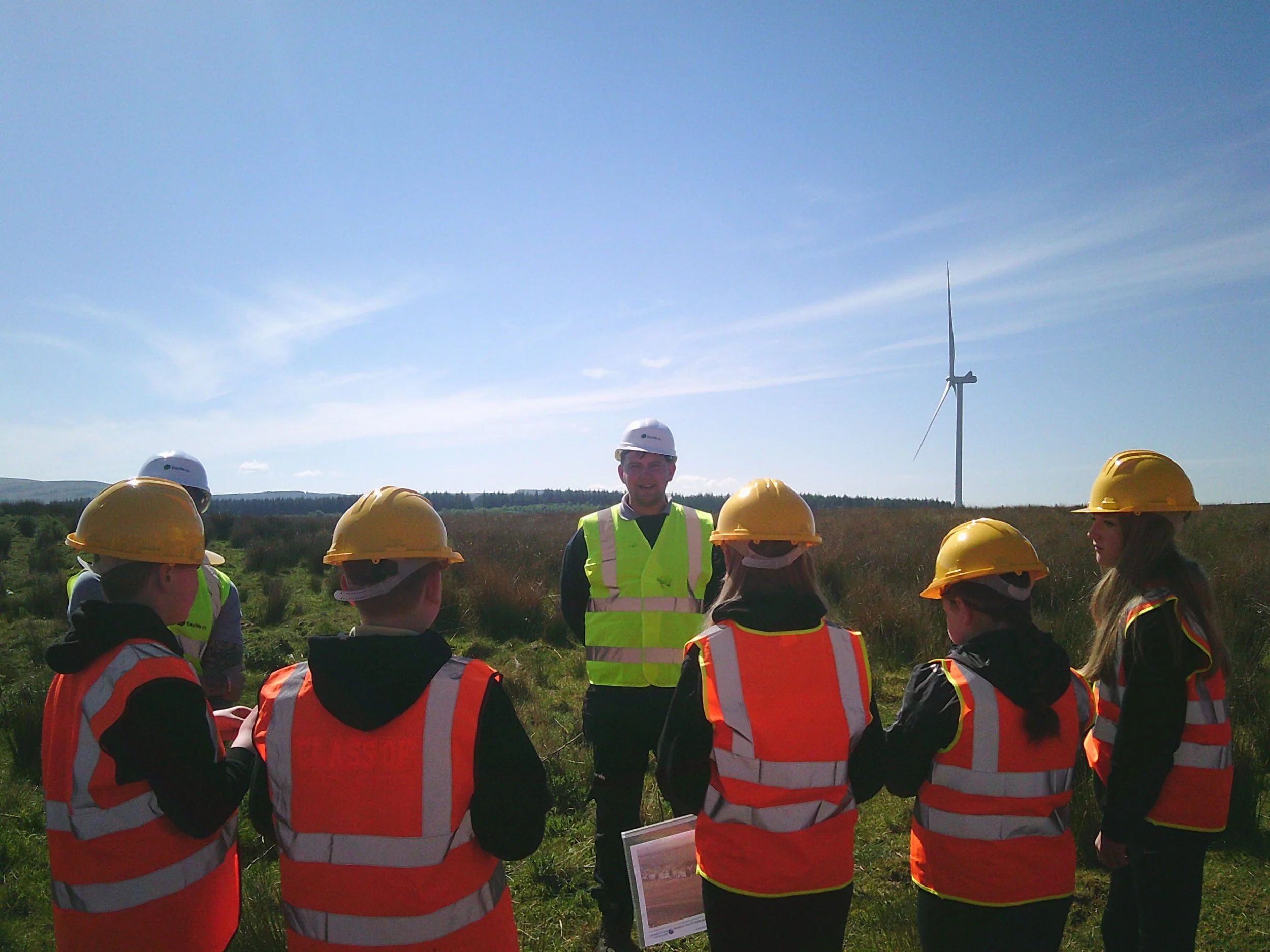
We have worked with over 490 schools across the UK and have organised school visits for over 15,000 students to solar and wind farms in the UK.

We work with schools, colleges and universities local to renewable energy sites building a programme of site visits, workshops, webinars and online support for students to learn more about renewable energy, biodiversity and climate change.
Our experienced Educational Consultants work directly with teachers and lecturers to ensure that the programme meets their requirements and fits with their learning.
Video Case study - school workshop and educational visit
Our primary objective is to get students out of the classroom to renewable energy sites.
We support educational visits for all ages and stages from pre-school to university and community groups.
Our educational visits last an average of two hours and they are all hands on, experiential and fun. We work closely with schools to ensure that each visit is tailored to their learning.
We organise all aspects of the educational visits from risk assessment, Educational Consultant, bus, toilet hire, curriculum links, activity planning and resources.
For your peace of mind, all of our risk assessments are approved by Croner.
Educational visits to solar and wind farms
We are funded by the renewable energy site and we provide the following:-
~ School educational visits to solar and wind farms for all age groups
~ National Curriculum links and planning documents with suggested activities
~ Equipment for you to continue your learning in school
~ Thorough risk assessments prior to the visit , worksheets and a day planner
We have contacts across the UK and are working to increase our capacity so please get in touch if you would like us to help you organise an educational visit to a solar or wind farm.
Topics you can cover on a site visit
Renewable Energy
Students will see and understand in detail one key form of renewable energy which will be critical to our future power generation. They will explore what makes solar/wind renewable and what the benefits of using renewable power are. We will provide ideas to explore these concepts further in school.
Climate Change
Solar and wind power takes on greater significance within our energy mix every day. We will explore this context and the important land use change from farming to power generation and discuss the effects of this. We will also discuss energy consumption and ask children to suggest changes they can make.
Biodiversity
Renewable energy sites are managed to support many different plants and animals. On the farm you will be able to identify different species, create food chains and webs, and set up quadrat and transect studies to map the biodiversity on the site. We will discuss ways we can help increase biodiversity in our spaces and suggest activities to help you track your improvements.
The wind
On a wind farm visit students will learn more about how and why wind is generated and the different speeds at different heights the wind turbines record. Students will be able to explore the power of the wind with their own wind socks or pin wheels and measure the wind speed at different parts of the site using a wind meter.
The Sun
Focusing your educational visit around the sun enables you to explore different scientific concepts including: light and shadow; the relationship between the earth and the sun; the sun as our ultimate source of energy; climate change; and carbon capturing. At the solar farm you can explore why solar panels are constructed to face due south at an angle of 30 degrees and to explain the gap between the rows of panels.
Electricity
Throughout the educational visit you will be learning about how electricity is generated and transported. Students will have the opportunity to make their own solar powered circuits. Students will be introduced to technical terms like volts, ac, dc, inverters, and explore the safety and materials needed to ensure the site generates electricity safely.
Maths
A solar farm is constructed according to many mathematical equations. From estimating the number of solar panels on the site followed by physically counting them to working out how many ipads/tvs/kettles one solar panel can power. We can set lots of maths challenges throughout your educational visit.
STEM Careers and Jobs
Many different people work on renewable energy sites including archaeologists, project managers, ecologists, landowners, electricians and construction workers. Students will have the opportunity to meet people who work on or for the solar farm and hear about their role and the skills they need to do their job.
Frequently asked questions
What can you expect from Earth Energy Education?
Our Educational Consultants will organise all the external elements for your visit. This includes sharing a Risk Assessment for you to review, a Method Statement (a requirement for visiting a solar farm – explaining how the visit will be run), we can organise a pre-visit meeting on site, provide resources for on-site learning activities, organise the logistics for your educational visit, and organise your transport.
What do you need to plan?
A date
How the visit fits into your curriculum/topics
Appropriate adult: child ratios.
First Aid
Permission forms
Hi-vis jackets
Ensure children are appropriately dressed
Provide stationary for your site visit
How does the visit work?
On arrival your students will be given a health & safety talk. After that, there are generally two components to your visit to the solar farm - a tour of the site and learning activities connected to your curriculum focus.
What curriculum areas are covered on the visit?
The main curriculum area covered is Science, primarily Biology and Physics, however there are aspects of the Geography curriculum which are also included. We can provide a list of suggested activities and curriculum links.
What will Key Stage 1 pupils learn?
KS1 students will learn what solar panels do and why this is important for our environment. They can learn about the natural life found on the site.
What will Key Stage 2 pupils learn?
KS2 students will learn all about the importance of renewable energy, how the solar panels work, what materials they are made from, positioning of the panels and how the electricity made ends up at people’s homes. They can also carry out a biodiversity study of the site, create food chains and webs. We also have small solar circuits and solar toys to show students how the electricity makes things work.
How will the visit support learning about circuits?
Solar panels use electrical circuits to allow the electricity to travel. Your students can explore small solar circuits and solar toys to explore how electricity makes things work.
How will the visit support learning about animals and plants and living things?
Students can learn to identify the wildlife on site and find out about different habitats for mini-beasts. They can also create bee houses or bug hotels for the solar farm. Solar farms have a wealth of wildlife and are managed to support biodiversity.
What will Key Stage 3 pupils learn?
KS3 students will learn about environmental issues relating to renewable energy, how the materials used cause chemical reactions to create electricity. They can also learn different sampling techniques, looking at the biodiversity of the site.
How will the visit support learning about ecosystems?
Study of the solar farm habitats and its dependants show how ecosystems survive.
What will Key Stage 4 and A level pupils learn?
KS4/5 students will learn about advanced electrical circuitry and how this works within the solar farm context. They can also classify organisms and look at the human impact on ecosystems.
How long will the activities last?
Our activities can last from 30 minutes to 1 ½ hours, dependent on the age of the students. So an educational visit could take a whole morning or afternoon session.
What facilities are available at the site?
Earth Energy Education will provide toilet facilities which include a hand wash basin, usually located near the site entrance. We can also provide hand wipes whilst on site. There are no classrooms or buildings at the sites for the students to access.
What are the transport arrangements?
Earth Energy Education can organise the transport for you. The coach(es) will drop the students off as close to the site as possible.


















